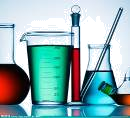
题目列表(包括答案和解析)
go, study, have, look after, invite, busy, play, take, hear, sandwich
Hi, Mark!
Thanks for your 1. . I’m sorry I can’t go. This afternoon, I’m going to2. to the doctor. I 3. the flu three days ago. Tomorrow I have to 4. for the English test. The day after tomorrow, I’m 5. a piano lesson. On Thursday, I’m 6. soccer with the school team. On Friday, I have to 7. my sister. She likes 8. very much. I’ll buy some for her. So you see, I have a really 9. week. What about you? Can you tell me? I look forward to 10. from you.
Yours,
Vince
study
1)UN.the act of learning about a subject
e.g.She spent the whole afternoon on ________.
2)n.subjects studied
e.g.He told me that he would go to the Department of African ________.
3)CN.a thorough enquiry into a particular subject including a piece of writing
e.g.She's made a ________ of Jack London's novels.
4)n.a room in a house used for studying or private work
e.g.What is she doing in her ________?
5)v.to spend time learning a subject
e.g.He ________ English for three years already.
6)v.to exam carefully
e.g.You'd better ________ the map well before you leave.

Scientists study the world and learn about things using a process called the scientific method(方法). By asking important questions and 16 the answers, it is possible to make amazing discoveries! Sometimes a scientist is 17 to answer his own questions, but if he has taken good notes another scientist may come along later who is able to use new knowledge to answer it.
When you use the scientific method to 18 an experiment, you start by making observations(观察) about something that 19 you. Based on your observations, you make a hypothesis. This is using 20 you know to make a smart guess about what you think could happen. Then you are ready to begin your experiment. All 21 your experiment you take down notes, which are 22 experiment date(资料). You are constantly making observations during this time. You may make discoveries that cause you to improve your experiment as you go. 23 , you conclude your experiment and begin to look over your notes to decide what it all means. Based on what you have learned, you make a final statement about 24 your hypothesis was correct or not. You have to have reasons and evidence to support what you are saying.
Using the scientific method can be difficult, but rewarding. Because all the steps are organized in a process, the 25 are more valid(可信的). When you provide observations as evidence to support what you are saying, your ideas are more likely to be accepted.
| 【小题1】 |
|
| 【小题2】 |
|
| 【小题3】 |
|
| 【小题4】 |
|
| 【小题5】 |
|
| 【小题6】 |
|
| 【小题7】 |
|
| 【小题8】 |
|
| 【小题9】 |
|
| 【小题10】 |
|

Scientists study the world and learn about things using a process called the scientific method(方法). By asking important questions and 16 the answers, it is possible to make amazing discoveries! Sometimes a scientist is 17 to answer his own questions, but if he has taken good notes another scientist may come along later who is able to use new knowledge to answer it.
When you use the scientific method to 18 an experiment, you start by making observations(观察) about something that 19 you. Based on your observations, you make a hypothesis. This is using 20 you know to make a smart guess about what you think could happen. Then you are ready to begin your experiment. All 21 your experiment you take down notes, which are 22 experiment date(资料). You are constantly making observations during this time. You may make discoveries that cause you to improve your experiment as you go. 23 , you conclude your experiment and begin to look over your notes to decide what it all means. Based on what you have learned, you make a final statement about 24 your hypothesis was correct or not. You have to have reasons and evidence to support what you are saying.
Using the scientific method can be difficult, but rewarding. Because all the steps are organized in a process, the 25 are more valid(可信的). When you provide observations as evidence to support what you are saying, your ideas are more likely to be accepted.
1. A.waiting for B.searching for C.worrying about D.complaining about
2. A.unable B.sure C.ready D.surprised
3. A.read B.refuse C.prevent D.conduct
4. A.hurts B.represents C.interests D.attacks
5. A.what B.when C.why D.which
6. A.without B.including C.except D.during
7. A.controlled B.arranged C.called D.carried
8. A.Obviously B.Suddenly C.Finally D.Mostly
9. A.whether B.what C.how D.when
10. A.problem B.results C.services D.aims
湖北省互联网违法和不良信息举报平台 | 网上有害信息举报专区 | 电信诈骗举报专区 | 涉历史虚无主义有害信息举报专区 | 涉企侵权举报专区
违法和不良信息举报电话:027-86699610 举报邮箱:58377363@163.com